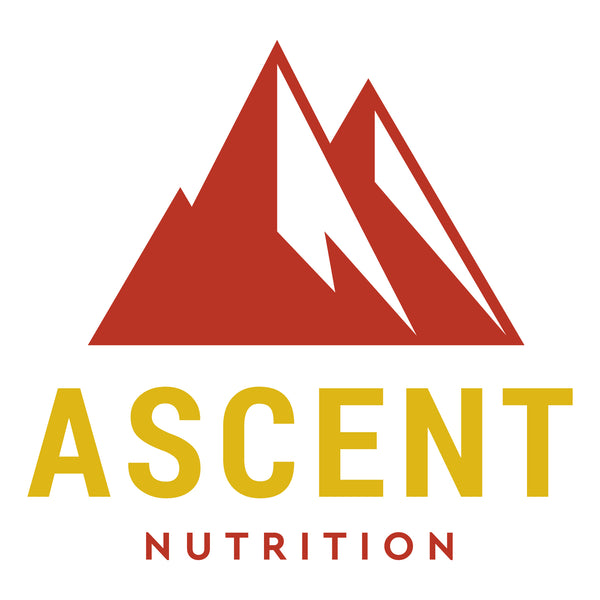-
Rhodes, L. E., Friedmann, P. S., O'Farrell, S., & Jackson, M. J. (1994). Dietary fish-oil supplementation in humans reduces UVB-erythemal sensitivity but increases epidermal lipid peroxidation. Journal of investigative dermatology, 103(2), 151-154: https://pubmed.ncbi.nlm.nih.gov/8040603/
-
Rhodes, L. E., Shahbakhti, H., Azurdia, R. M., Moison, R. M., Steenwinkel, M. J. S., Homburg, M. I., ... & Vink, A. A. (2003). Effect of eicosapentaenoic acid, an omega-3 polyunsaturated fatty acid, on UVR-related cancer risk in humans. An assessment of early genotoxic markers. Carcinogenesis, 24(5), 919-925: https://pubmed.ncbi.nlm.nih.gov/12771037/
-
Kendall, A. C., Kiezel-Tsugunova, M., Brownbridge, L. C., Harwood, J. L., & Nicolaou, A. (2017). Lipid functions in skin: Differential effects of n-3 polyunsaturated fatty acids on cutaneous ceramides, in a human skin organ culture model. Biochimica et Biophysica Acta (BBA)-Biomembranes, 1859(9), 1679-1689: https://www.sciencedirect.com/science/article/pii/S0005273617300986
-
Kawamura, A., Ooyama, K., Kojima, K., Kachi, H., Abe, T., Amano, K., & Aoyama, T. (2011). Dietary supplementation of gamma-linolenic acid improves skin parameters in subjects with dry skin and mild atopic dermatitis. Journal of oleo Science, 60(12), 597-607: https://pubmed.ncbi.nlm.nih.gov/22123240/
-
Balbás, G. M., Regaña, M. S., & Millet, P. U. (2011). Study on the use of omega-3 fatty acids as a therapeutic supplement in treatment of psoriasis. Clinical, cosmetic and investigational dermatology, 73-77: https://www.ncbi.nlm.nih.gov/pmc/articles/PMC3133503/
-
Neukam, K., De Spirt, S., Stahl, W., Bejot, M., Maurette, J. M., Tronnier, H., & Heinrich, U. (2011). Supplementation of flaxseed oil diminishes skin sensitivity and improves skin barrier function and condition. Skin pharmacology and physiology, 24(2), 67-74: https://pubmed.ncbi.nlm.nih.gov/21088453/
-
Lin, Z., Niu, Y., Jiang, Y., Chen, B., Peng, L., Mi, T., ... & Kan, H. (2021). Protective effects of dietary fish‐oil supplementation on skin inflammatory and oxidative stress biomarkers induced by fine particulate air pollution: a pilot randomized, double‐blind, placebo‐controlled trial. British Journal of Dermatology, 184(2), 261-269: https://pubmed.ncbi.nlm.nih.gov/32333793/
-
Pilkington, S. M., Watson, R. E. B., Nicolaou, A., & Rhodes, L. E. (2011). Omega‐3 polyunsaturated fatty acids: photoprotective macronutrients. Experimental dermatology, 20(7), 537-543: https://pubmed.ncbi.nlm.nih.gov/21569104/
-
Sies, H., & Stahl, W. (2004). Nutritional protection against skin damage from sunlight. Annu. Rev. Nutr., 24, 173-200: https://pubmed.ncbi.nlm.nih.gov/15189118/
-
Rhodes, L. E., Gledhill, K., Masoodi, M., Haylett, A. K., Brownrigg, M., Thody, A. J., ... & Nicolaou, A. (2009). The sunburn response in human skin is characterized by sequential eicosanoid profiles that may mediate its early and late phases. The FASEB Journal, 23(11), 3947: https://pubmed.ncbi.nlm.nih.gov/19584301/
-
Rhodes, L. E., Shahbakhti, H., Azurdia, R. M., Moison, R. M., Steenwinkel, M. J. S., Homburg, M. I., ... & Vink, A. A. (2003). Effect of eicosapentaenoic acid, an omega-3 polyunsaturated fatty acid, on UVR-related cancer risk in humans. An assessment of early genotoxic markers. Carcinogenesis, 24(5), 919-925: https://pubmed.ncbi.nlm.nih.gov/12771037/
-
Gilchrest, B. A. (1989). Skin aging and photoaging: an overview. Journal of the American Academy of Dermatology, 21(3), 610-613: https://pubmed.ncbi.nlm.nih.gov/2476468/
-
Braverman, I. M., & Fonferko, E. (1982). Studies in cutaneous aging: I. The elastic fiber network. Journal of Investigative Dermatology, 78(5), 434-443: https://pubmed.ncbi.nlm.nih.gov/7069221/
-
Kim, H. H., Shin, C. M., Park, C. H., Kim, K. H., Cho, K. H., Eun, H. C., & Chung, J. H. (2005). Eicosapentaenoic acid inhibits UV-induced MMP-1 expression in human dermal fibroblasts. Journal of lipid research, 46(8), 1712-1720: https://pubmed.ncbi.nlm.nih.gov/15930517/
-
Kim, H. H., Cho, S., Lee, S., Kim, K. H., Cho, K. H., Eun, H. C., & Chung, J. H. (2006). Photoprotective and anti-skin-aging effects of eicosapentaenoic acid in human skin in vivo. Journal of lipid research, 47(5), 921-930: https://pubmed.ncbi.nlm.nih.gov/16467281/
-
Zanetti, M., Grillo, A., Losurdo, P., Panizon, E., Mearelli, F., Cattin, L., ... & Carretta, R. (2015). Omega-3 polyunsaturated fatty acids: structural and functional effects on the vascular wall. BioMed research international, 2015: https://www.ncbi.nlm.nih.gov/pmc/articles/PMC4537737/
-
Singer, A. J., & Clark, R. A. (1999). Cutaneous wound healing. New England journal of medicine, 341(10), 738-746: https://pubmed.ncbi.nlm.nih.gov/10471461/
-
McDaniel, J. C., Belury, M., Ahijevych, K., & Blakely, W. (2008). Omega‐3 fatty acids effect on wound healing. Wound Repair and Regeneration, 16(3), 337-345: https://pubmed.ncbi.nlm.nih.gov/18471252/
-
McDaniel, J. C., Massey, K., & Nicolaou, A. (2011). Fish oil supplementation alters levels of lipid mediators of inflammation in microenvironment of acute human wounds. Wound Repair and Regeneration, 19(2), 189-200: https://pubmed.ncbi.nlm.nih.gov/21362086/
-
Guertler, A., Neu, K., Fiedler, T., Kuna, A. C., Kaemmerer, T., Lill, D., ... & Reinholz, M. (2022). Clinical effects of omega-3 fatty acids on acne vulgaris. Journal der Deutschen Dermatologischen Gesellschaft, (7), 1023-1027: https://onlinelibrary.wiley.com/doi/pdf/10.1111/ddg.14779
-
Kang, J. I., Yoon, H. S., Kim, S. M., Park, J. E., Hyun, Y. J., Ko, A., ... & Kang, H. K. (2018). Mackerel-derived fermented fish oil promotes hair growth by anagen-stimulating pathways. International journal of molecular sciences, 19(9), 2770: https://www.ncbi.nlm.nih.gov/pmc/articles/PMC6164340/
-
Le Floc'h, C., Cheniti, A., Connétable, S., Piccardi, N., Vincenzi, C., & Tosti, A. (2015). Effect of a nutritional supplement on hair loss in women. Journal of cosmetic dermatology, 14(1), 76-82: https://pubmed.ncbi.nlm.nih.gov/25573272/
-
Chapkin, R. S., Ziboh, V. A., & McCullough, J. L. (1987). Dietary influences of evening primrose and fish oil on the skin of essential fatty acid-deficient guinea pigs. The Journal of nutrition, 117(8), 1360-1370: https://pubmed.ncbi.nlm.nih.gov/3625311/

